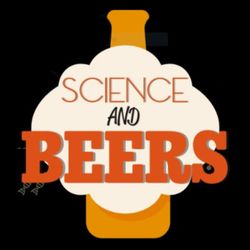Latest episode
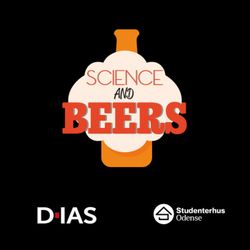
10. Fat Cells
53:14||Season 3, Ep. 10Fat cells are specialised to store large amounts of fat that act as metabolic energy depots. However, fat cells carry out many other vital functions such as appetite regulation. Fat cells can talk to each other, the brain and the other organs. In this episode, Professor Susanne Mandrup talks about fat cells, as well as the epigenetics and DNA associated with fat cells and metabolic disease. Ph.D. Susanne Mandrup is Professor at Department of Biochemistry and Molecular Biology at SDU where she serves as Director of the Center of Excellence in Functional Genomics and Tissue Plasticity (ATLAS) and Center for Adipocyte Signaling (ADIPOSIGN), as well as Head of the Functional Genomics & Metabolism Research Unit. Click here for more information about ATLAS and ADIPOSIGN.Professor Susanne Mandrup is an elected member of the Royal Danish Academy of Sciences and Letters, Academia Europaea, AcademiaNet, and the European Molecular Biology Organization (EMBO) and Knight of the Order of Dannebrog.For more information about Professor Susanne Mandrup, please refer to the SDU Research Portal.Follow Susanne on Twitter @susmandrupPlease fill out our podcast review form to help us evaluate the season.Follow us and get in touch.Twitter: @Science_Beers, @DanishIASFacebook: @Scienceandbeers, @DanishIASEmail: scienceandbeers@gmail.comwww.scienceandbeers.com/podcastSign up for our newsletter.This season of the podcast is made with the support from the Danish Institute for Advanced Study. Follow their Lecture series.This podcast is hosted by Michael Magee.Cheers to Science!
More episodes
View all episodes
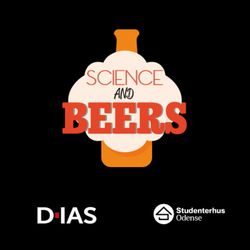
9. Football is Medicine
53:16||Season 3, Ep. 9"Football is medicine, football is for everyone, football is for life." That's the message from Peter Krustrup as we have a beer and a chat at the Euro 2020 Fan Zone is Copenhagen. Episode recorded June 24th, 2021. You can find some pictures of the meeting here.Peter is Chair of Health Sciences at the Danish Institute for Advanced Study. He is Professor of Sport and Health Sciences at the Department of Sports Science and Clinical Biomechanics at SDU and Honorary Visiting Professor at University of Exeter, United Kingdom and Shanghai University of Sport, China. He is also a UEFA Pro-License football coach, currently working as Fitness Coach for the Danish Women’s National Team.He initiated the international “Football is Medicine” platform with more than 250 researchers from 25 countries. Football is medicine is the result of a 15 year study with 150 peer-reviewed articles. Peter's research interests consist of two main areas: Fitness and health effects of physical activity across the lifespan with special reference to team. This includes investigations of the link between the locomotor activities and physiological demands of various sports disciplines and other types of physical activity types, the cardio-vascular, metabolic and musculoskeletal adaptations after short and long-term interventions, and the potential for prevention, treatment and rehabilitation of lifestyle related diseases, such as hypertension, obesity, type 2 diabetes and osteoporosis, and also for men with prostate cancer and women with breast cancer.Secondly he examines sports performance, fatigue, training and testing of male and female elite athletes. This includes analysis of physiological demands and locomotor activities in training and match-play for elite athletes and the general population, fatigue, recovery, development of sport-specific testing protocols, reliability and validity of tests in relation to sports performance, effects of aerobic training, anaerobic training, strength training, sprint training and agility training for elite and recreational athletes and effects of environmental factors, playing surface and diet manipulation on performance and recovery.Find more links to Peter's research here or on Twitter @sdusport Please fill out our podcast review form to help us evaluate the season.Follow us and get in touch.Twitter: @Science_Beers, @DanishIASFacebook: @Scienceandbeers, @DanishIASEmail: scienceandbeers@gmail.comwww.scienceandbeers.com/podcastSign up for our newsletter.This season of the podcast is made with the support from the Danish Institute for Advanced Study. Follow their Lecture series.This podcast is hosted by Michael Magee.Cheers to Science!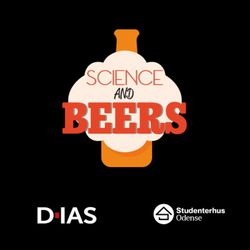
8. Educational Philosophy
41:36||Season 3, Ep. 8In this episode, I speak with Professor Nina Bonderup Dohn about education and knowledge transfer. Nina is a Senior Fellow og Humanities and the Danish Institute for Advanced Study (DIAS). For further insights into her research, watch her DIAS lecture "Designing for situated knowledge in a world of change." MA, Ph.D, Dr.phil Nina Bonderup Dohn is Professor in Learning and ICT at the Department of Design and Communication at the University of Southern Denmark.She is Head of the Center for Learning Computational Thinking, an interdisciplinary center involving researchers from the Faculty of Humanities (Department of Design and Communication and Department for the Study of Culture), the Faculty of Science (Department of Mathematics and Computer Science) and the Faculty of Engineering (Maersk-McKinney Moller Institute). She also leads the research program Learning, Design and Digitalization at the Department of Design and Communication. She currently (2020-2024) holds a research grant from Independent Research Fund Denmark for the project Designing for Situated Computational Thinking with Computational Things which involves researchers from three Danish universities and four international ones (in Great Britain, Australia, and the Netherlands). She recently finalized another project, Designing for Situated Knowledge in a World of Change, also financed by Independent Research Fund DenmarkIn 2004, she was awarded the Teaching Prize for the Faculty of Humanities, upon nomination from her students.Her research field bridges between epistemology, learning theory, and cognitive theory, and does so both philosophically and in terms of the development and testing of concrete designs for learning in practice, with a special focus on the role of ICT. Interdisciplinarity is key in her work, including the metaphilosophical explication of the roles philosophy can have in relation to other disciplines. Her research centers on questions such as what human knowledge is, how it is developed, how one can facilitate others’ in developing knowledge, and what roles technology can play.Follow us and get in touch.Twitter: @Science_Beers, @DanishIASFacebook: @Scienceandbeers, @DanishIASEmail: scienceandbeers@gmail.comwww.scienceandbeers.com/podcastSign up for our newsletter.This season of the podcast is made with the support from the Danish Institute for Advanced Study. Follow their Lecture series.This podcast is hosted by Michael Magee.Cheers to Science!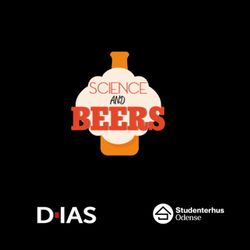
7. The history of the universe in a glass of beer
01:26:54||Season 3, Ep. 7Professor Francesco Sannino is the Founder and Director of the Centre for Cosmology and Particle Physics Phenomenology (CP³-Origins) at the University of Southern Denmark. He is also the founder of the Danish Institute for Advanced Study, where is Chair of Physics. He is also currently Chair in Theoretical Physics at the University Federico II in Napoli and the Scuola Superiore Meridionale in Italy. In this episode, we look inside a glass of Weißbier to see what the universe is made of. Below is a timestamp of the conversation. (hh:mm:ss)(00:05:25) The atom and electromagnetism (00:23:50) Where do protons comes from?(00:31:40) Worm holes (00:33:44) The beginning of the universe and a theory for everything(00:44:46) Discoveries at CERN(00:49:04) Fundamental particles(00:51:57) What is in empty space?(00:53:32) Gravity and the Higgs(01:00:18) Black Holes(01:07:05) Time travel and consciousness (01:09:20) How did Francesco get interested in physics(01:11:32) The creation of DIAS(01:16:14) Modelling the spread of infectious disease Find a lecture from Francesco hereString theoryhttps://www.youtube.com/watch?v=A_vtUtc1noIThe pandemic playbook: A physicist take - DIAShttps://www.youtube.com/watch?v=KOhZUjyvV44The elegant laws of the Universe and it´s mysterieshttps://www.youtube.com/watch?v=CLkz3-Wio94Follow us and get in touch.Twitter: @Science_Beers, @sannfrancesco, @DanishIASFacebook: @Scienceandbeers, @DanishIASEmail: scienceandbeers@gmail.comwww.scienceandbeers.com/podcastSign up for our newsletter.This season of the podcast is made with the support from the Danish Institute for Advanced Study. Follow their Lecture series.This podcast is hosted by Michael Magee.Cheers to Science!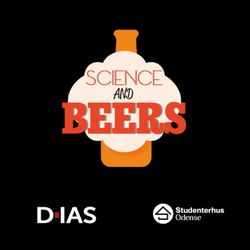
6. Nuclear Bombs and Polio Interventions
01:31:48||Season 3, Ep. 6My guest this week is Dr Keith Andrew Meyers. We talk about two of his research interests, the economic consequences of atmospheric nuclear testing conducted in the Nevada desert during the 1950s, and the socioeconomic effects of the Salk polio vaccine. We later digressed into the nature of conspiracy theories, morality, and the phenomena of epistemological decline.Here's a timestamp (hh:mm)(00:04) Nuclear Bombs(00:26) Polio(00:47) The economy of health(00:51) Importance of investing in science(01:01) The series of events that are needed to put bread on the shelves(01:03) Merchants of doubt(01:12) Morality(01:14) The political strategy of disinformation and the epistemological decline(01:21) HappinessKeith Andrew Meyers is Assistant Professor at Macroeconomics, International Economics and Economic History group in the Department of Business and Economics at the University of Southern Denmark, where is is a Fellow at the Danish Institute for Advanced Studies. This podcast is hosted by Michael Magee.Follow us and get in touch.Twitter: @Science_Beers, @sdueconhist, @DanishIASFacebook: @Scienceandbeers, @DanishIASEmail: scienceandbeers@gmail.comwww.scienceandbeers.com/podcastSign up for our newsletter.This season of the podcast is made with the support from the Danish Institute for Advanced Study. Follow their Lecture series.Cheers to Science!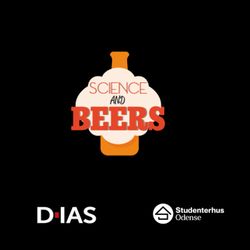
5. What if we kept a 0.05% blood alcohol concentration?
21:06||Season 3, Ep. 5What would be the short and long term effects of maintaining a blood alcohol concentration of 0.05%? This question was inspired by the Oscar-winning Danish film, Druk. To answer this and more alcohol related questions is Dr Aleksander Krag. Dr Krag is Professor and senior consultant of Hepatology and Director of Odense Liver Research Centre at SDU and Odense University Hospital (OUH). He is also a Chair of Heath Science and the Danish Institute for Advanced Study. Read more about his research into liver disease. This podcast is hosted by Michael Magee. Follow us and get in touch.Twitter: @Science_Beers, @AleksanderKrag, @DanishIASFacebook: @Scienceandbeers, @DanishIASEmail: scienceandbeers@gmail.comwww.scienceandbeers.com/podcastSign up for our newsletter. This season of the podcast is made with the support from the Danish Institute for Advanced Study.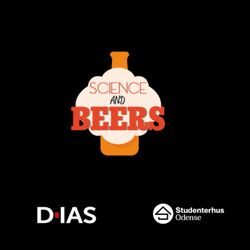
4. Marine Ecology
01:02:36||Season 3, Ep. 4How thick is the sea ice at the North Pole? What is it like to scuba dive in leopard seal hunting grounds? And what does a marine biologist think of the Seaspiracy documentary? Our guest, Dr Karl Attard answers these questions and more. Karl's research interests include the productivity of coastal waters and the factors that drive fundamental ecosystem processes such as primary production and respiration. Seafloor habitats are a key focus of his work, as they represent hotspots of biodiversity and productivity within the ocean but yet remain poorly studied. His research has taken him on 30 expeditions including the Arctic and Antarctic. Karl is Assistant Professor in the NordCEE group of the Biology Department at the University of Southern Denmark, where he is also a Fellow at the Danish Institute for Advanced Study. Read more about his work here. Further reading into the SLAPP lawsuits Karl mentions in the podcast.Ending Gag Lawsuits in Europe Protecting Democracy and Fundamental RightsSustainable seafood guideThis podcast is hosted by Michael Magee. Follow us and get in touch. Twitter: @Science_Beers, @KMAttard, @DanishIASFacebook: @Scienceandbeers, @DanishIASEmail: scienceandbeers@gmail.comwww.scienceandbeers.com/podcastThis season of the podcast is made with the support from the Danish Institute for Advanced Study.
